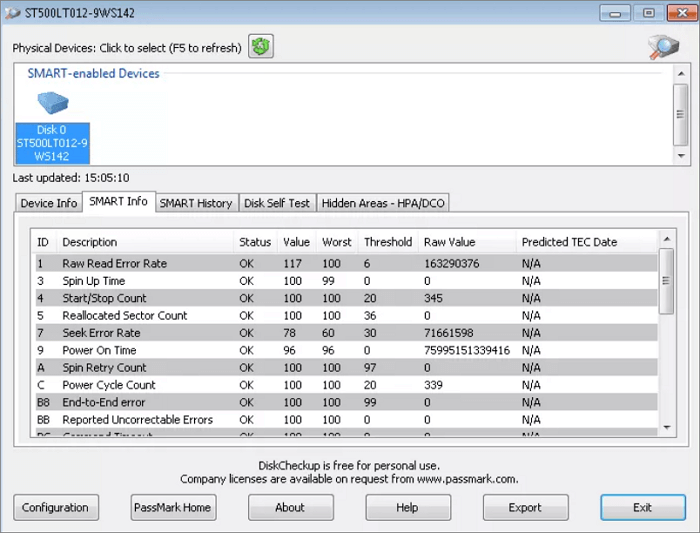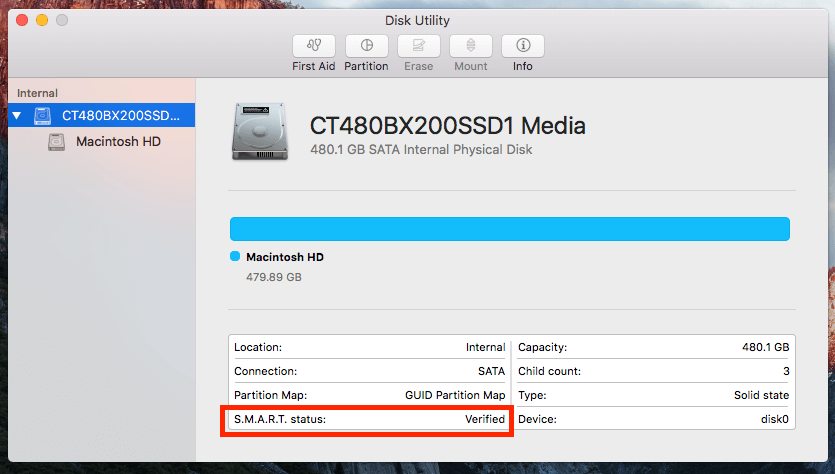

SAS2IRCU: Utility Completed Successfully. LSI Corporation SAS2 IR Configuration Utility.Ĭopyright (c) 2008-2014 LSI Corporation. Step one is discover the ID of your SAS HBA (example): /tmp#. To try it you would put it in the /tmp directory and make it executable first. With FreeNAS you will need the FreeBSD version. LSI maintains versions for FreeBSD, Linux and Windwos. What you need is the sas2ircu utility from LSI (now Avago). I know this is beyond late for the original poster but, perhaps others will find this useful. Now, when an error comes up saying a disk with gptid number xyz has an error, you'll be able to reference your sheet and know which drive you need to pull/replace. The list in the web GUI will only show the label "da3" for the disk. Note: when you see something like "da3p1" that's partition one of the drive identified as da3.
#Checking disk health zfs freebsd serial numbers#
Now write in all the gptid numbers to associate them with the drive names and thus the serial numbers and their locations. So, type glabel status and you should get something like this. Now, at the shell, we need to match up the drive names with all the gptid numbers. If you don't see the serial numbers, you will have to drop to the shell and type smartctl -a /dev/ada0 | grep ^Serial (replacing "/dev/ada0" with each of the drive names from the list)
#Checking disk health zfs freebsd serial number#
Note the drive name given for each serial number you had in the previous list. On that tab you should have a list of all your drives and their serial numbers.

On a double sided JBOD case for instance, you may want to note front/back, row, & column. Write down the serial number of every drive and also write down the location of where that drive was inserted. how do you know which drive to pull? Figuring that part out requires some legwork at the time of install. Unfortunately, the web GUI doesn't show you these numbers. Requested config: NAME STATE READ WRITE CKSUM

Imediately after creation, the "zpool status" will look something like this (depending on your pool configuration). The current version of FreeNAS (ver 9.3 at the moment) will create a gptid for each drive added to a zpool.


 0 kommentar(er)
0 kommentar(er)
